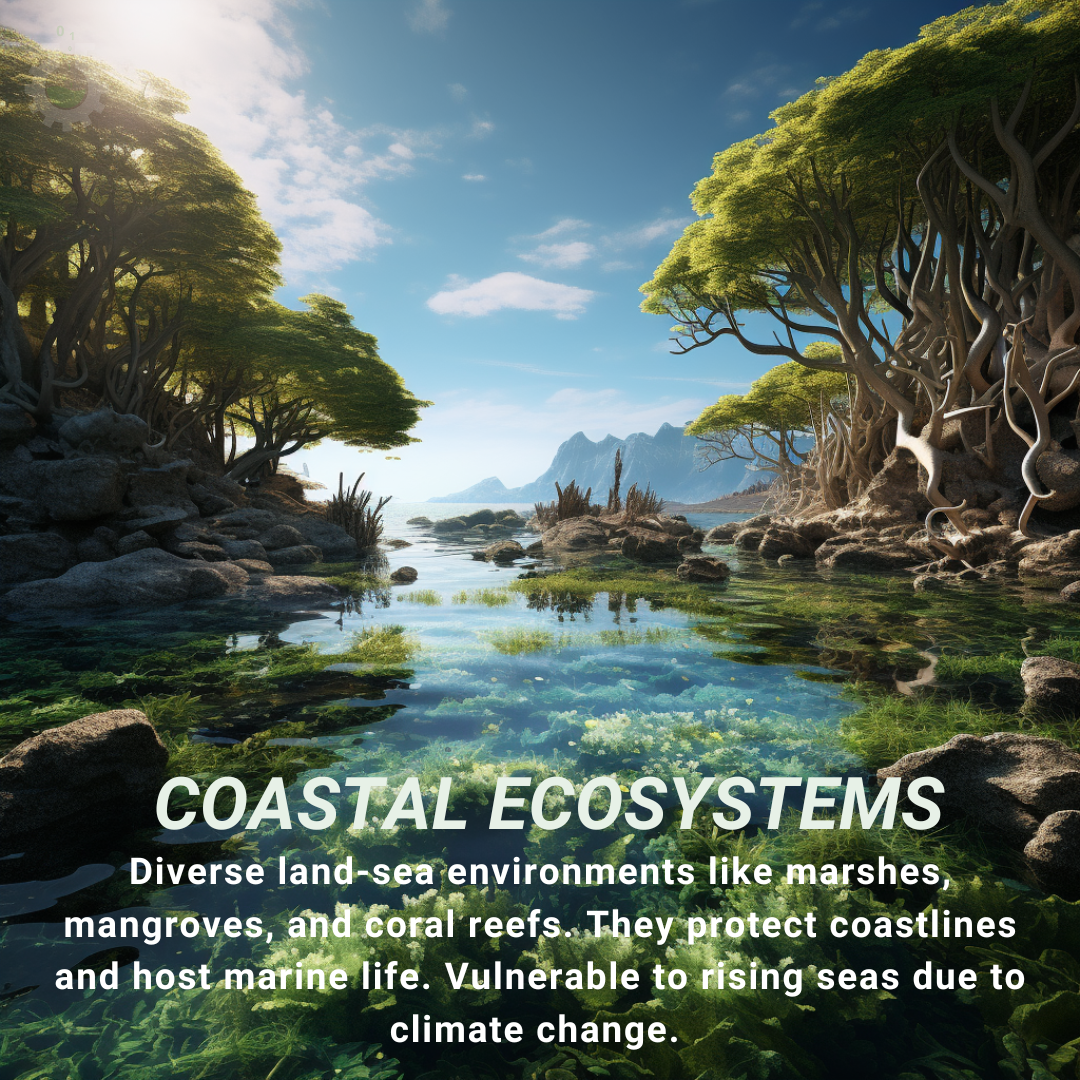October 23, 2023
Climate Change Poster Collection of the Day – Coastal ecosystems
Book a Demo
Today’s Climate Change Poster Collection focuses on Coastal ecosystems, positioned at the unique intersection of land and ocean, play a crucial role in Earth’s climate regulation. Their strategic location and the nature of their existence make them instrumental in carbon storage, a significant factor in managing Earth’s temperature. These ecosystems, often overlooked, serve as powerful “carbon sinks,” holding carbon captive in their water-logged soils for thousands of years.
Among coastal ecosystems, mangroves are particularly noteworthy. These unique habitats are known to store three to five times more carbon per acre compared to other tropical forests. This incredible capacity for carbon storage showcases the irreplaceable value of mangroves in our fight against climate change.
However, the benefits of coastal ecosystems extend far beyond carbon storage. They also serve as a natural barrier against the impacts of climate change, absorbing the energy of hurricanes and storm surges. This protective function safeguards our coastal communities and helps mitigate the damage from extreme weather events.
The diversity of coastal ecosystems is truly impressive. They come in various forms, each offering unique services and benefits. Mangrove forests, salt marshes, seagrass meadows, oyster reefs, and coral reefs all fall under this category. Each ecosystem is a world in itself, providing a unique habitat for a myriad of species.
These ecosystems are a lifeline for commercial fishing grounds and serve as breeding and resting areas for various wildlife species. They also contribute to the local economy by attracting tourism and providing recreational opportunities. Thus, their importance stretches from environmental conservation to economic welfare.
Despite their immense importance, these ecosystems face significant threats from climate change and human activities. Urban development, aquaculture, and pollution continue to erode these valuable habitats. These threats jeopardize not only the ecosystems themselves but also the carbon stored within them. If disturbed, this carbon could be released into the atmosphere, further contributing to global warming.
Hence, conservation efforts are ongoing to protect these ecosystems and their carbon storage abilities. By preserving coastal ecosystems, we can secure their environmental and economic benefits while mitigating the impacts of climate change. The importance of these ecosystems cannot be overstated, and their protection should be a priority for everyone. After all, the health of our coastal ecosystems is intrinsically linked to the health of our planet.
Discover an inspiring collection of climate change poster.



